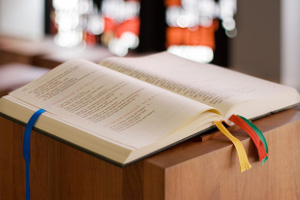 Babel is the city where people babble: not only a pun in English but also in Hebrew.
Babel is the city where people babble: not only a pun in English but also in Hebrew.
The story we read today has a dialogue that is not a dialogue at its heart. The people of Shinar talk to each other yet it is not clear whether God hears them or not. God speaks but the people do not seem to hear. Maybe God is also speaking to ‘each other’ as the ‘us’ of verse 7 might imply.
The people of Shinar would like to make a ‘name’ for themselves. This makes a contrast with Gen 12:2 where God promises to make a ‘name’ for Abraham. They are also worried to be scattered. This is a theme that will return again and again in the stories that follow: scattered in Egypt, scattered in exile, scattered in diaspora; brought home by God (Exodus), returned by Cyrus (2 Chron. 36:23), gathered by the Messiah (Christ in Greek).
It is not clear why God objects to what they do. It is left to our imagination whether the tower really had a top in heaven that disturbed God who then decided to come down and have a look around.
At Pentecost God takes the initiative to make another ‘name’: the name of Jesus Christ. The tower with the tip in heaven is turned upside down and the movement is from God to us. The misunderstanding of Babel is taken away, those separated are brought together, but not in one language but in diversity.
15 May 2016
Gen. 11:1-9
This weekly blog on one of the lectionary readings is by Anne Claar Thomasson-Rosingh, Programme Leader for Lifelong Learning at Sarum College.

Leave a Reply